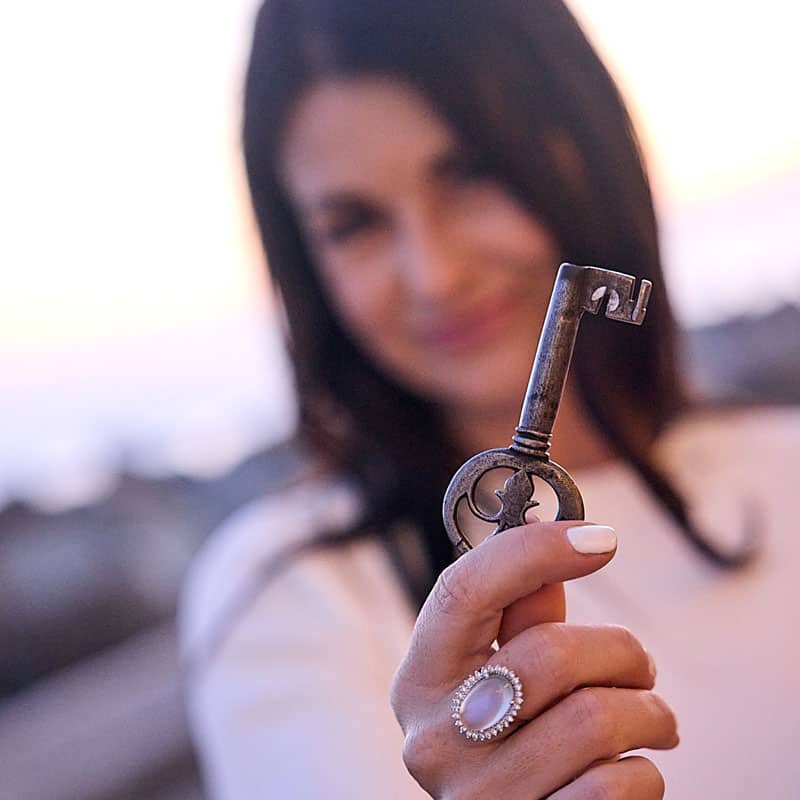Do You Love Me? Did You Miss Me?
 Picture yourself in a romantic relationship. You wake up one morning and are feeling down, which happens to all of us from time to time. You feel insecure, upset, or unsettled in some way. As a result, you yearn for comfort, understanding, and reassurance: you want a big hug, flowers, chocolate, and to hear all of the loving words that appear in fairy-tales. You want your partner to make you feel better by validating your worth and verifying that your relationship is securely intact.
Picture yourself in a romantic relationship. You wake up one morning and are feeling down, which happens to all of us from time to time. You feel insecure, upset, or unsettled in some way. As a result, you yearn for comfort, understanding, and reassurance: you want a big hug, flowers, chocolate, and to hear all of the loving words that appear in fairy-tales. You want your partner to make you feel better by validating your worth and verifying that your relationship is securely intact.
Over the course of the day, you feel worse and worse. Soon you start to fixate on your partner instead of yourself and your internal experience. You may think about what s/he doesn’t do to meet your needs; ways that s/he doesn’t make you feel special; and efforts that you wish s/he would make. You start to become more and more upset as you focus your attention on your partner, thereby distracting yourself from your internal process. All of this is going on inside your own mind—the rest of the world is completely unaware of your internal struggle.
By the time your uninformed partner phones or texts, you are more upset than when you woke up in the morning. Now your emotions are focused on your partner instead of where they really belong—on your internal experience. Before you stop and think, some version of these words come out of your mouth: “Do you love me? Did you miss me today? ” or, especially if you are angry, “You would do X or say Y if you loved me without me having to ask you!”
Most of us have asked someone if they love or miss us when we felt needy. We also have a tendency to fixate on other people or external circumstances when we feel insecure. But, stop and ask yourself, “Does this ever really go well? Do you ever really feel better when someone says that they love or miss you after you ask?
I have yet to meet someone who honestly feels better after asking their significant other these kinds of questions when they are feeling down. In fact, it is far more likely that they feel worse because asking someone whether they love you ends with one of two outcomes. One option is that your partner responds with, “Yes, I love you.” In this case, we don’t feel better because we don’t believe them; at some level we know they “didn’t really have a choice” (were they really going to say “no”?). We forced an answer, which results in us discounting their response. A second option is that they say, “No, I didn’t miss you and don’t love you.” Needless to say, that isn’t going to make us feel better! Now we really feel badly.
The truth is that asking questions like these are never going to leave you satisfied. Why? It is all about your reason for asking. When we look to other people for reassurance when we are feeling insecure (e.g., about not being pretty enough, smart enough, successful enough), we are always going to be left wanting more. That’s because we are being dishonest about what is really going on inside of us. Given the scenario above, a more honest way of communicating our feelings would be something like this: “I am having a rough day and am feeling uncomfortable and insecure. I would really like some support from you today because I am struggling. Are you available for that?”
The Naked Truth is this: you will never feel better asking others to validate your value if your reasons for asking come from your feelings of insecurity. You will end up discounting their answer. Instead, this is an opportunity to honestly reflect on your insecurity (e.g., “What am I feeling insecure about?”) and focus on your own personal growth. If you do want social support from a lover or friends, which is totally natural and can be very helpful, do so in a way that is honest. Tell them that you are struggling and would like some support instead of trying to get your needs met by asking them no-win questions—questions for which there are no answers that will satisfy you.
Copyright Cortney S. Warren, Ph.D.
TO READ MORE OF DR. CORTNEY'S WORK, SUBSCRIBE TO HER BLOG
Safe subscribe. You will have the opportunity to opt-out with every notice we send.


Very helpful! For me the key message is about how to re-frame questions when we feel needy to be about ourselves and not the other person. You did that when you re-framed the no-win questions, “Do you love me? Do you miss me?” by saying, instead, ““I am having a rough day and am feeling uncomfortable and insecure. I would really like some support from you today because I am struggling. Are you available for that?” I really benefited from this example and message.
This is a very open field that should have received attention a long time ago. I am glad Cortney has tackled this problem head on. It is the only way to do it if you want peace with yourself and choose to be really happy with yourself for the rest of your life. Excellent piece of work.
Insightful article on many levels. One thing I think you could have covered is how to approach the situation when your partner provides numerous clues that he may not actually love you anymore and you’d like to inquire about what your partner is actually feeling. Questions about whether one is still loved do not always arise out of low self-esteem or only the situations you discuss. They also arise out of a partner’s noticeable changes in behavior, and I’d like to see you address that question. Thank you for writing an article on this topic.
Thank you for the thoughtful comment. If you are actually asking someone whether they love you because you want an honest answer (i.e., it will determine whether you stay in the relationship or not; you believe they may not love you anymore), that is a good reason to ask. Because it IS honest. You are actually hoping to get an answer that will help you make larger life choices.
Unfortunately, that is not generally the reason we ask.
Self deception subject is not new. The difference is that Dr. Cortney has explained it the “awesome” way.
Lots of interesting concepts are burried alive. Until someone comes and gives it a value. Revives it.
you were awesome in presenting the concept on TEDx. It was clear but sounded a little bit as a Toastmaster’s presentation. 🙂
Isn’t that the essence of us as human? To lie to ourselves?
I wanted to ask you only one question:
I admit that it was an extremely painful desision. But why couldn’t you stop your emotion, (about to cry) when you revealed to the audience that you have resigned from Academia.
Very interesting….
Thank you for the feedback. You know, I wasn’t actually about to cry when I announced that I resigned from academia. But it was a highly emotional decision for me. It challenged me to redefine my professional identity in ways that are more consistent with who I want to be today. It forced me to look at my life and really evaluate whether I was living the life that I really wanted. When the answer was, “no,” the next question became, “why?” And here I am 🙂